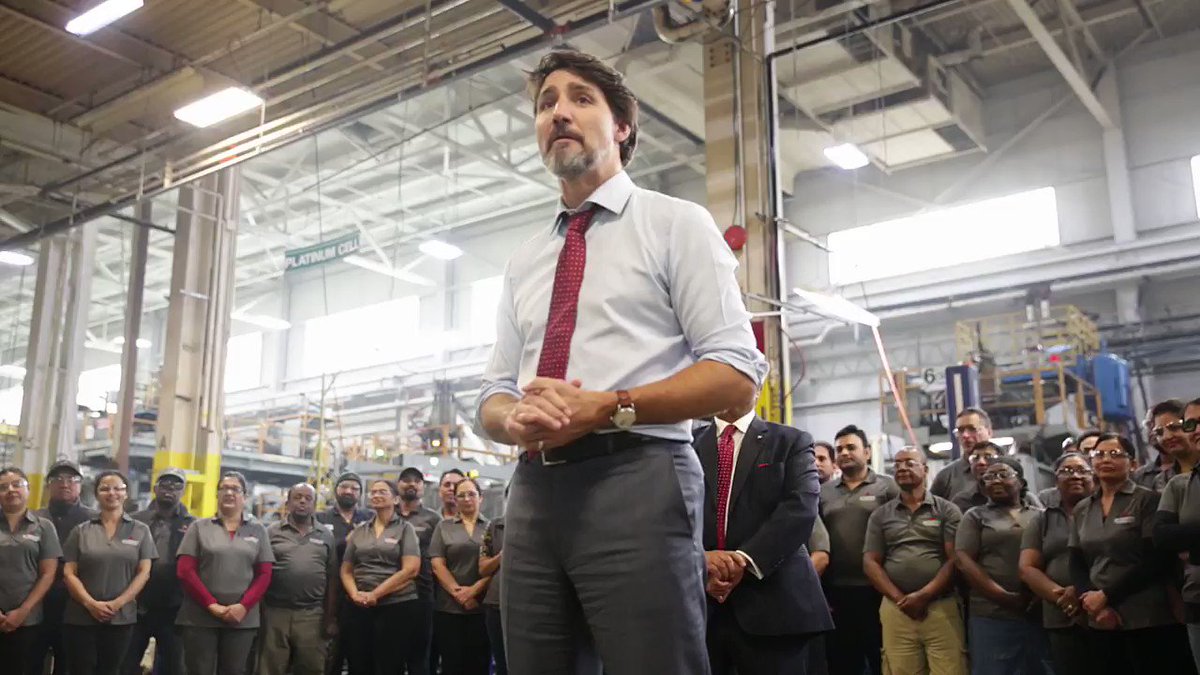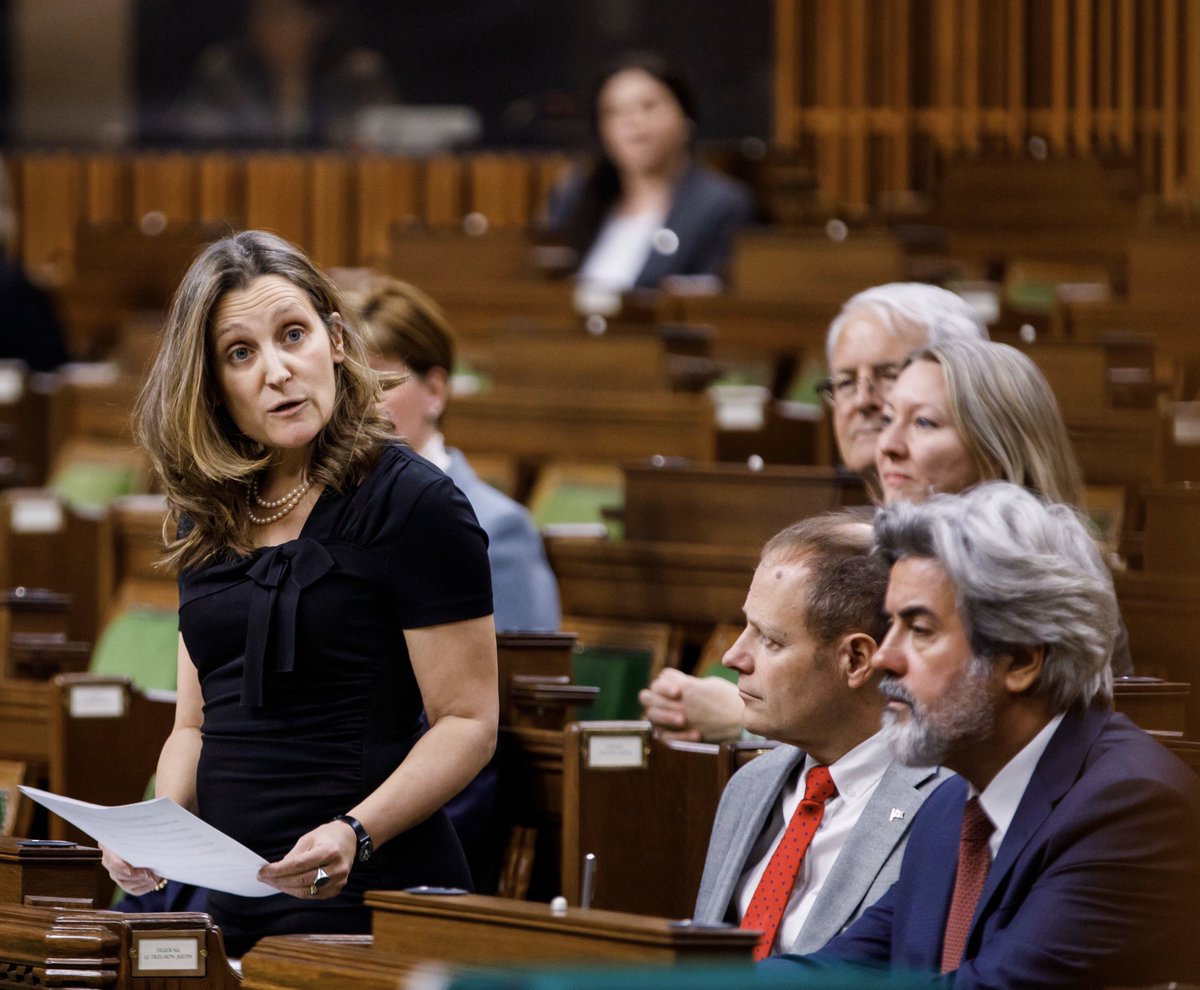Now that the United States-Mexico-Canada-Agreement (USMCA) has been officially approved by the U.S. and Mexico, Canada is the next signatory that needs to do so before final enactment. But the new accord still has a complicated process ahead of it.
After the U.S. Senate approved the USMCA, the last obstacle to its ratification in the U.S. after a lengthy negotiating process, Prime Minister Justin Trudeau reiterated his commitment to getting the agreement, called the Canada-United States-Mexico Agreement (CUSMA) in Canada, passed during his time in office. The three member countries approved the agreement back in December before their respective ratification processes.
However, Trudeau’s Liberal Party lost 20 Parliamentary seats in the October federal elections, though they won enough seats to form a minority government. That means the Liberals must work in collaboration with fellow parties to agree on the North American Free Trade Agreement (NAFTA) replacement.
This week, the New Democratic Party (NDP) in the Canadian House of Representatives (where CUSMA currently sits with the Standing Committee on International Trade) agreed to work with the Liberals on expediting the passage of Bill C-4, which would officially put CUSMA into force, in exchange for hashing out new procedures on how Canada negotiates trade deals in the future.
Workers across the country, like those I met at ABC Technologies in Brampton today, keep our economy strong & growing. The new NAFTA means they can feel more confident about their jobs because it removes the threat of auto tariffs & protects our supply chains.
The fully ratified agreement will take effect on the first day of the third month after all three countries’ approval.
Deputy Prime Minister Chrystia Freeland introduced Bill C-4 on Jan. 29. For almost two years, she spearheaded Canada’s trade negotiations for the revamped NAFTA. “It is in the national interest for us to finish this process, to put this process behind us, to have the economic and political certainty that ratification will bring,” she said the same day outside the House of Commons in Ottawa. “But I am far from thinking that the debate we’re hearing in the House now, the discussions we’ll hear in committee, are pointless.”
This morning in @OurCommons, I introduced a Ways and Means Motion for the new #NAFTA. I ask that all parliamentarians work together to put Canada and Canadians first, and get this important work done without undue delay. #CdnPoli
Opposition in Parliament, including from those in the Bloc Québécois (dedicated to Quebec nationalism and sovereignty), have raised objections to the agreement, particularly in the area of labor protections. Bloc Québécois is especially concerned that the Quebec aluminum market is not sufficiently protected by the agreement, which they say could result in the loss of tens of thousands of jobs in that industry.
After witnesses have had their say before the Foreign Affairs and International Trade Committee, the CUSMA will be considered “clause by clause” and voted on. It then goes back for final readings in the House and Senate and must be approved by both before it can receive royal assent by Governor General Julie Payette before being officially approved.
However, with this week’s deal worked out between the Liberals and the NDP, the “clause by clause” process will be finished by the end of February. CUSMA will then be sent back to the House for a vote by early March.
Dan Ujczo, international trade and customs lawyer with cross-border firm Dickinson Wright, told ASI Canada he expects there will be a vote in the House in about a month, followed by the Senate. While the trade deal negotiation agreement made this week between the Liberals and NDP guarantees passage in the House, “the Senate is a bit of a wildcard, but it’s a matter of when, not if,” he said.
Ujczo expects the agreement to be officially ratified between mid-March and early April, taking into account the Senate’s approval process and March break and holidays. “The USMCA will be fully in force sometime between Fourth of July Picnics and Labor Day,” said Ujczo.
The Canadian promotional products industry is particularly eager for final ratification and to move on with more economic and trade certainty after several years of cross-border wrangling and delays. “The signing will remove a huge level of uncertainty, which is never welcome in a stable, flourishing economy,” Daniel Baker, marketing manager at Toronto-based Debco (asi/48885), part of HPG (asi/61966), told ASI Canada. “That’s particularly true when those two countries are as intricately linked as the U.S. and Canada.”
While the new agreement may not have huge impacts on daily operations for promo firms, the ambiguity surrounding it over the past several years has certainly had an effect. “The time between the suspension of NAFTA and now came with a slew of emergency procedural changes for us, like temporary tariff calculations and temporary stock suspensions, that increased costs and affected efficiencies to the benefit of no one, especially U.S. distributors,” Baker said. “The negotiations probably cost our American distributor partners more than they gained, which is the exact opposite effect the Trump administration was looking for.”













